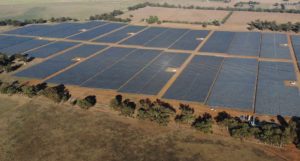The gas industry marketing people chose an unfortunate example to promote its wares – cooking food. See Regulator rules it is misleading to claim gas is “cleaner and greener”.
First, there is plenty of research that shows gas cooking emits a variety of air pollutants to the indoor environment, that contribute to respiratory issues. This makes it difficult to claim a broad environmental lead for gas cooking.
Gas cooking also dumps a significant amount of heat into the kitchen – good in winter but potentially increasing cooling energy consumption and peak cooling demand in hot weather.
If you are running a rangehood or exhaust fan while cooking and heating or cooling your living area, that may well be a bigger energy issue than your choice of cooking energy source, because it sucks in a lot of outdoor air that must be heated or cooled.
Second, the relative efficiencies of gas cooktops and ovens are lower than for induction cooktops and electric ovens. The exact relativities regarding carbon emissions from gas and electric options are tricky to calculate, so it is risky to make a strong claim.
For what it’s worth, my rough numbers for induction or microwave cooking compared with a gas cooktop are fairly similar to gas today.
If you are thinking about the next 15 years, as the emission intensity of electricity falls, electricity looks like a winner on a lifecycle basis.
Ovens are very tricky. From an indoor air pollution perspective, electric is a winner. For energy and carbon emissions, Australia doesn’t offer appliance labels for them.
And many homes with gas cooktops have electric ovens.
We don’t have independent public comparisons based on real data.
According to www.topten.eu the best electric ovens use 0.6 to 0.85 kWh under the EU standard test. Inefficient models use a lot more.
Based on my very limited measurements of my old gas oven, a gas oven may well come out ahead on carbon emissions today – if you use the 100 year Global Warming Potential in preference to the 20 year GWP for gas, and accept government estimates of methane leakage from gas supply.
But, over the lifecycle of a new oven, a new electric oven is likely to come out ahead on carbon emissions, regardless of this fine print.
I’ve ‘gone off gas’, so I am saving around $1/day on fixed gas charges, as I had already shifted from gas heating and hot water.
As a result, I could afford to buy carbon offsets that would offset over 20 tonnes of emissions annually with that saving.
Typical Australian electric cooking emissions are less than 1 tonne, and average household energy emissions are well under 20 tonnes.
In any case, I buy lots of carbon offsets.
Making credible environmental claims is a very tricky business….









